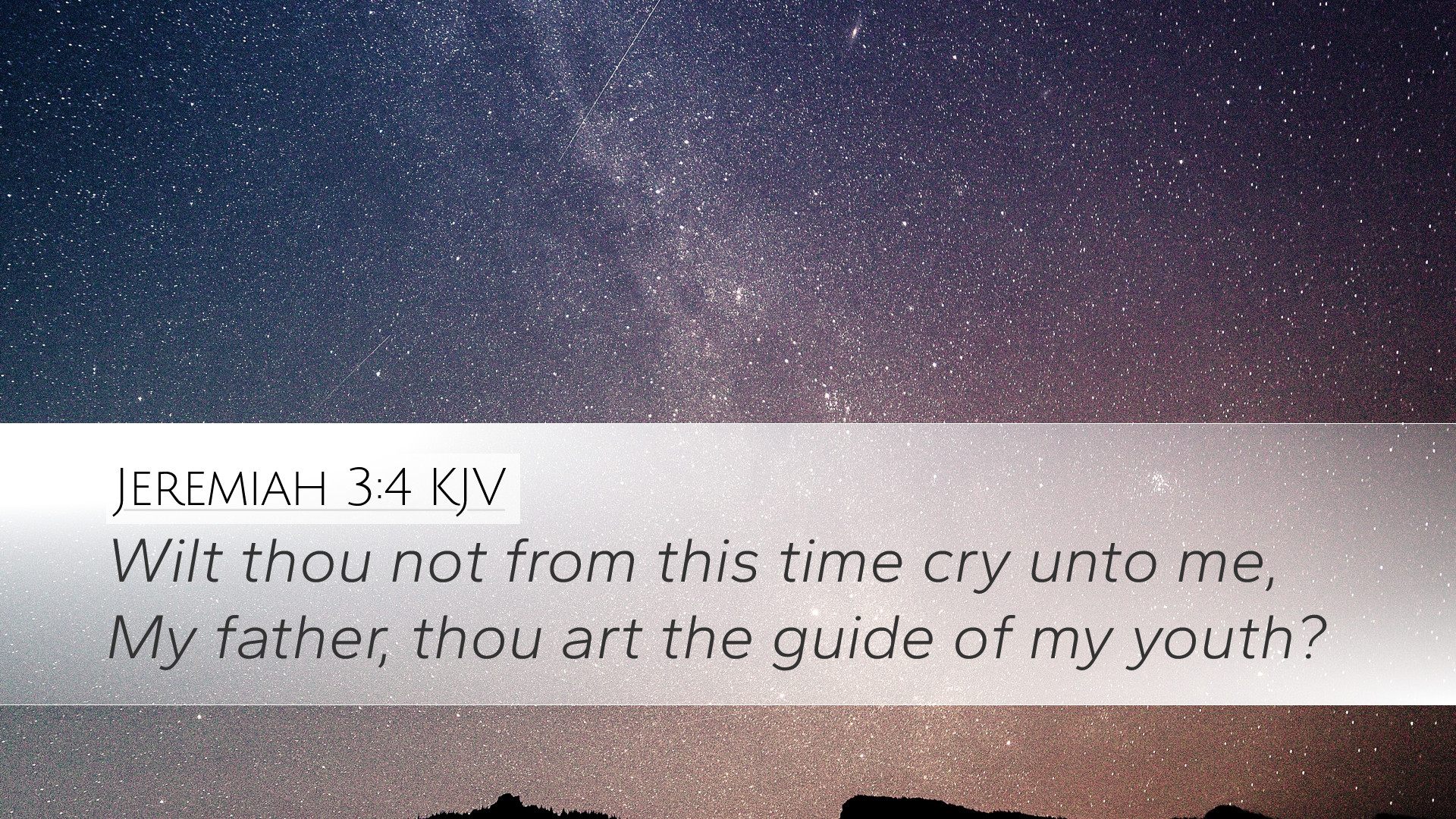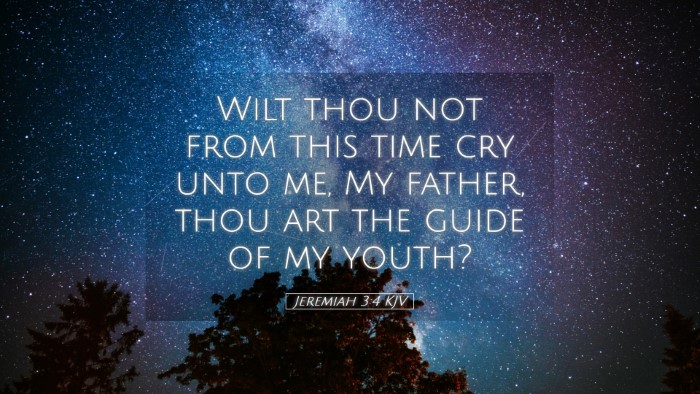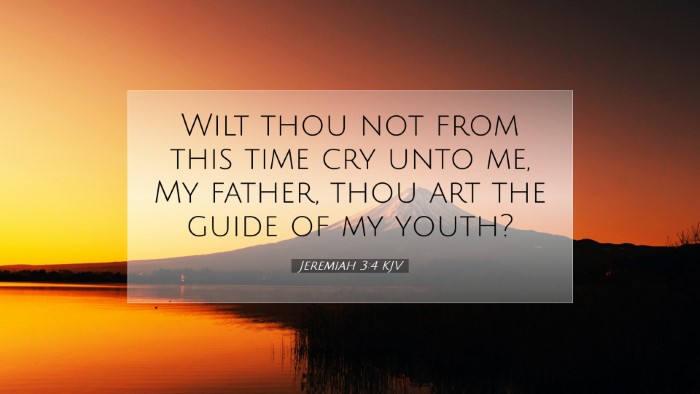Bible Commentary on Jeremiah 3:4
Verse: "Wilt thou not from this time cry unto me, My father, thou art the guide of my youth?" (Jeremiah 3:4)
Introduction
The verse of Jeremiah 3:4 captures a profound introspective longing—a call for reconnection with God. It reflects the dynamics of the relationship between Israel and God, embodying themes of fatherhood, guidance, and the plea for restoration. This commentary will draw from several public domain commentaries to collectively explore the significant theological insights present in this verse.
Contextual Background
The book of Jeremiah, often referred to as the "weeping prophet," addresses a tumultuous period in Israel's history when the people were distant from God due to their unfaithfulness and idolatry. Jeremiah’s prophetic messages often involve calls to repentance, warnings of judgment, and assurances of eventual restoration.
The Call to Cry Out
Analysis of the Phrase: "Wilt thou not from this time cry unto me?"
This opening question indicates not only an invitation but also an expectation from God. The prophets often highlight the conditional aspect of Israel’s relationship with God; repentance is the key to restoration. The urgency is palpable—not just in the implication of calling out, but the time frame suggests immediacy in their response.
- Matthew Henry: Henry suggests that God anticipates a genuine response from His people, stressing the need for heartfelt repentance over mere ritualistic practices.
- Albert Barnes: Barnes emphasizes that the plea to cry out embodies an acknowledgment of need and dependency on God as their ultimate provider and protector.
- Adam Clarke: Clarke points out that enduring hardship often leads one to recognize their need for divine help and guidance.
The Nature of God as Father
Reflection on the Title: "My father"
The term "father" denotes a relationship characterized by love, care, guidance, and authority. This petitions Israel to recognize God’s paternal role in their lives, inviting introspection about their past failures and the possibility of renewal.
- Matthew Henry: Henry emphasizes the contrast between God’s steadfast love and Israel's recurring disobedience, recommending that we acknowledge our relationship with God as one of child to loving parent.
- Albert Barnes: Barnes points out that calling God ‘My father’ suggests an intimate relationship, reminding the people of their identity as His chosen ones.
- Adam Clarke: Clarke elaborates on the implications of divine fatherhood, highlighting the responsibilities that lie with both God and His children in maintaining their covenant relationship.
God as the Guide of Youth
Understanding Guidance: "Thou art the guide of my youth"
The second half of the verse highlights God’s role as a guide—especially in the formative years. Such a guide is pivotal, influencing choices, values, and faith development. This aspect is particularly relevant for pastoral care and theological education, emphasizing how crucial it is to lead the young toward wisdom and righteous paths.
- Matthew Henry: Henry asserts that God’s guidance is both protective and directive, always aimed at leading His children to their ultimate good.
- Albert Barnes: Barnes infers that the guidance of youth establishes a framework for lifelong faithfulness and reliance on divine wisdom.
- Adam Clarke: Clarke notes that in recognizing God's hand in one’s youth, there is also a recognition of the importance of learning from the past in order to progress faithfully.
Theological Implications
Jeremiah 3:4 encapsulates a wealth of theological themes that resonate with pastors, students, and scholars alike. These include:
- Repentance: The verse serves as a reminder of the necessity of turning back to God, recognizing personal and communal sin, and inviting restoration.
- Divine Guidance: As God is positioned as a father and guide, theological discussions around discipleship, wisdom, and spiritual formation find significant relevance.
- Covenant Relationship: The essence of the relationship implies that both parties have roles—God remains faithful, while humanity is called to repentance and faithfulness.
Conclusion
In conclusion, Jeremiah 3:4 stands as a testament to God's enduring love and a call for reconciliation. For pastors and theologians, this verse serves as a foundation for understanding the dynamics of faith, the importance of crying out to God, and recognizing His leading in our lives. For students, it illustrates the importance of theology as lived experience, reminding us that our understanding of God must inform our actions and decisions.
It encourages a daily posture of seeking divine guidance, fostering a deeper intimacy with God, and evaluating our own faithfulness in the light of His unwavering commitment to us. The invitation stands—will we respond with a heartfelt “My father” and recognize Him as our guide once again?


